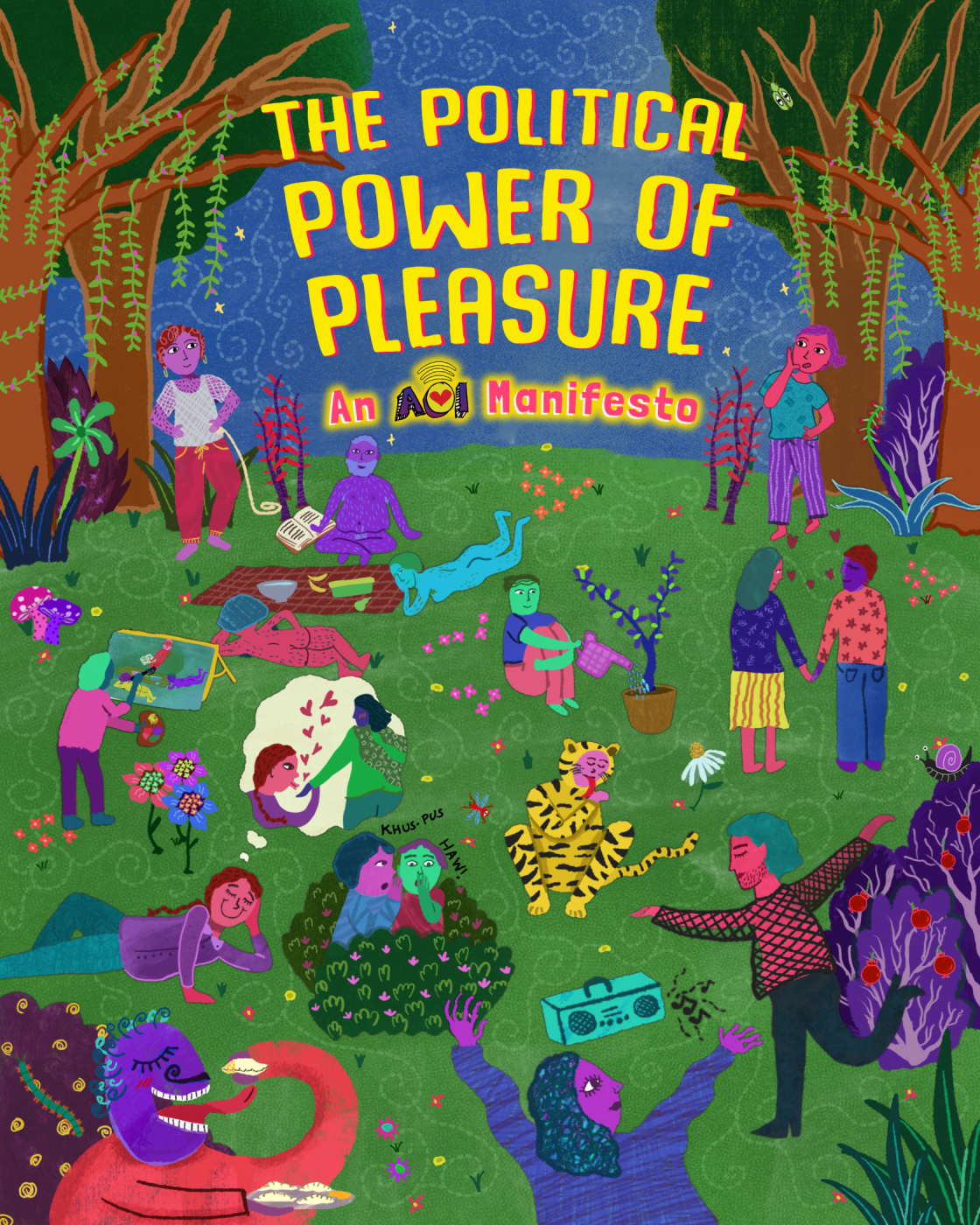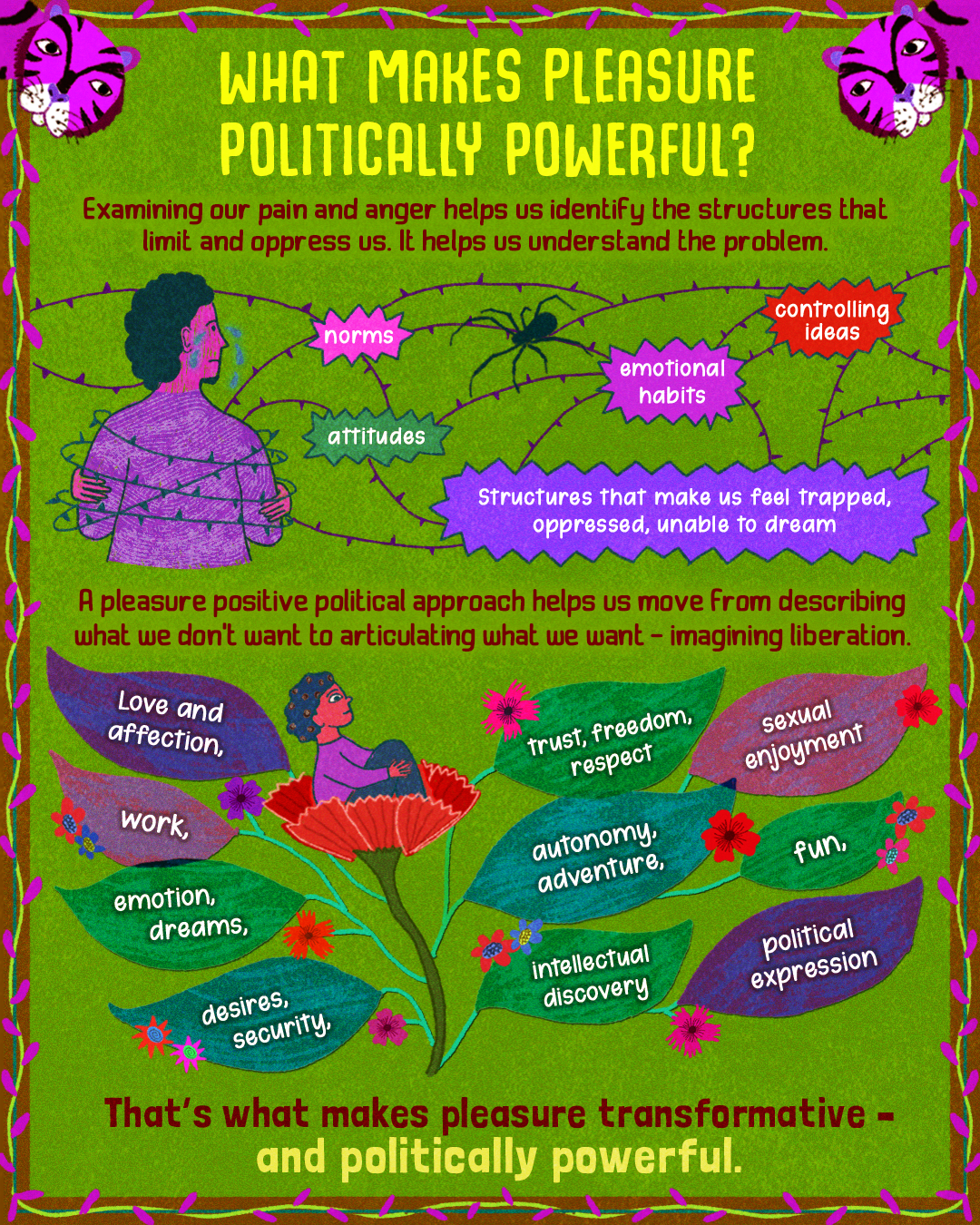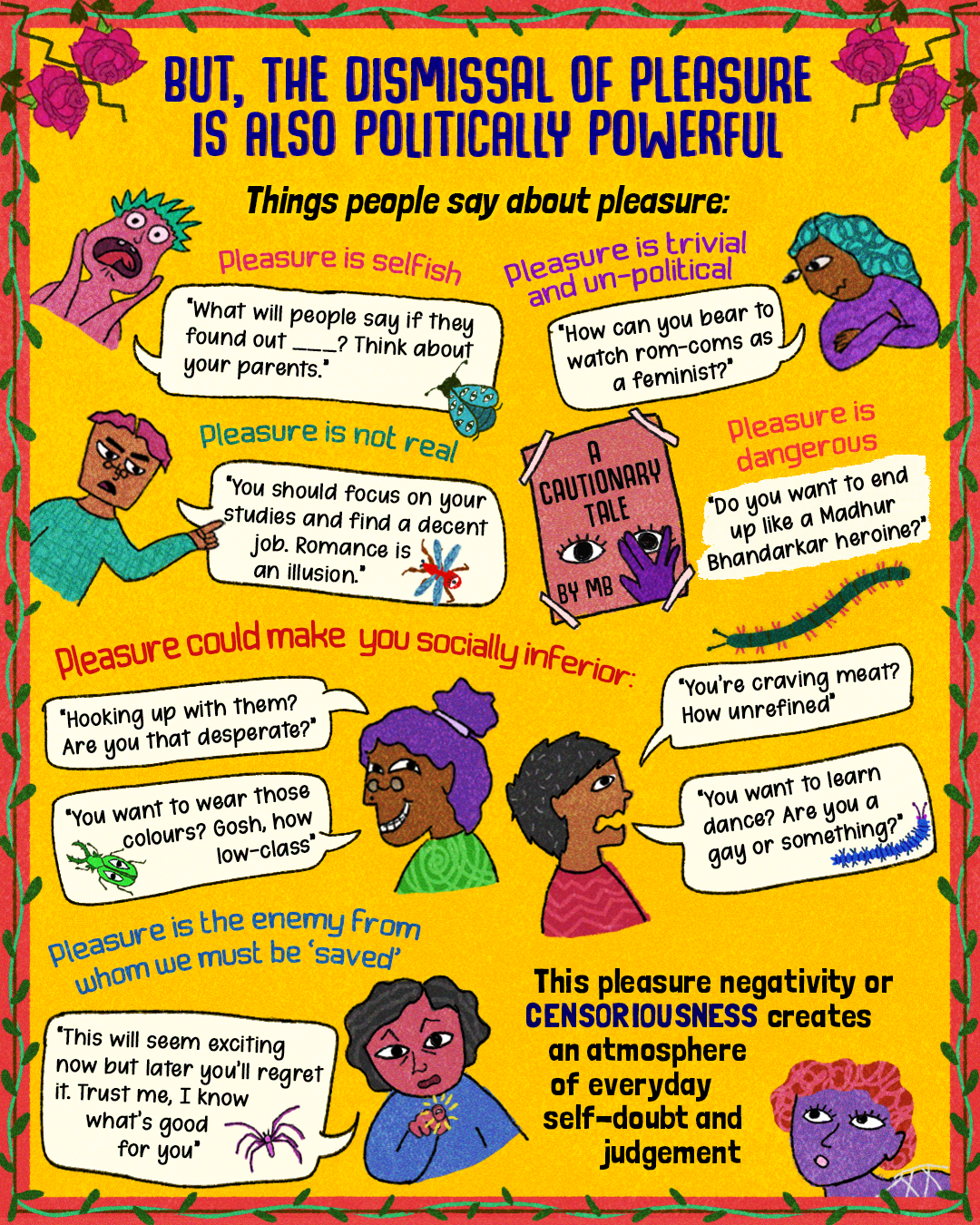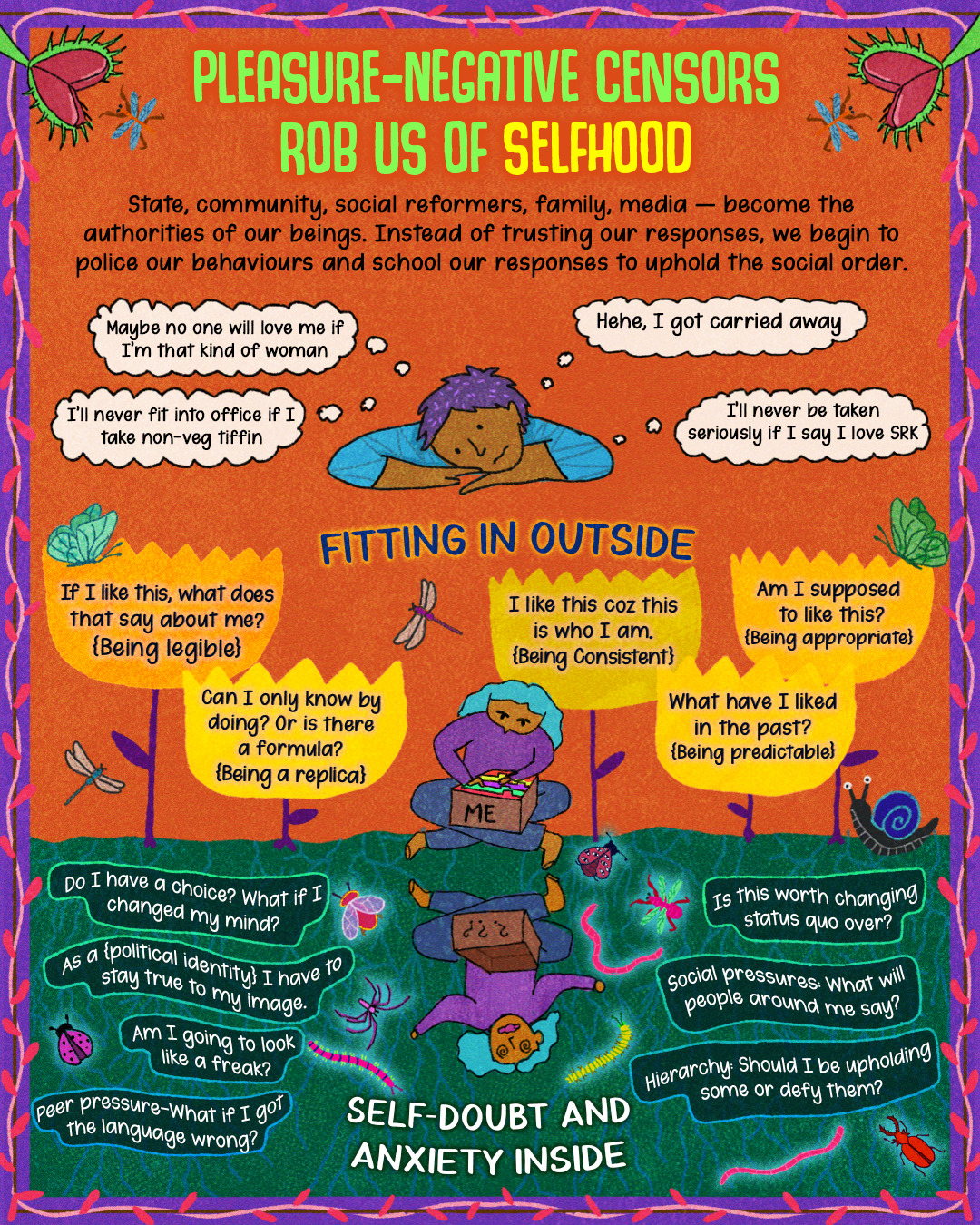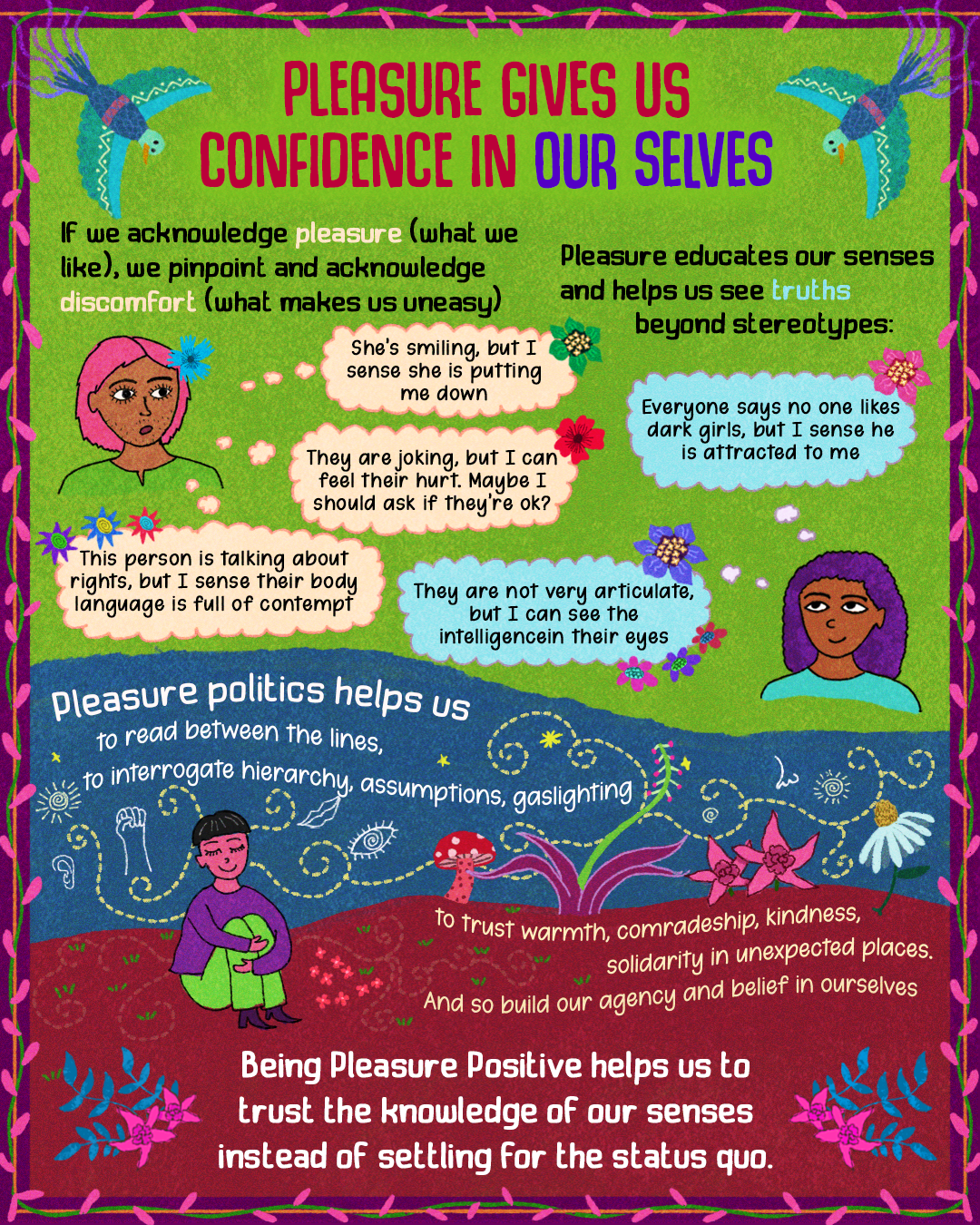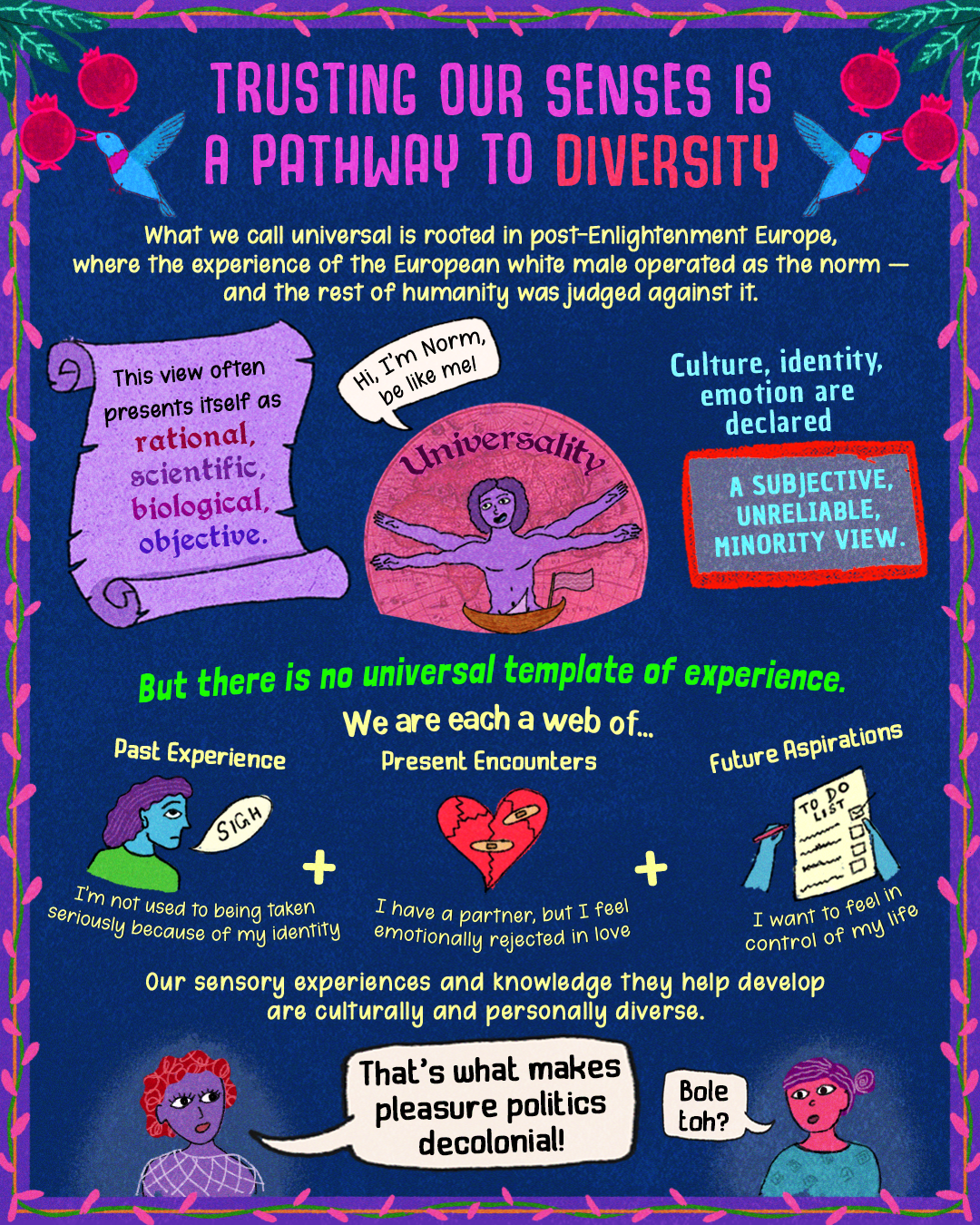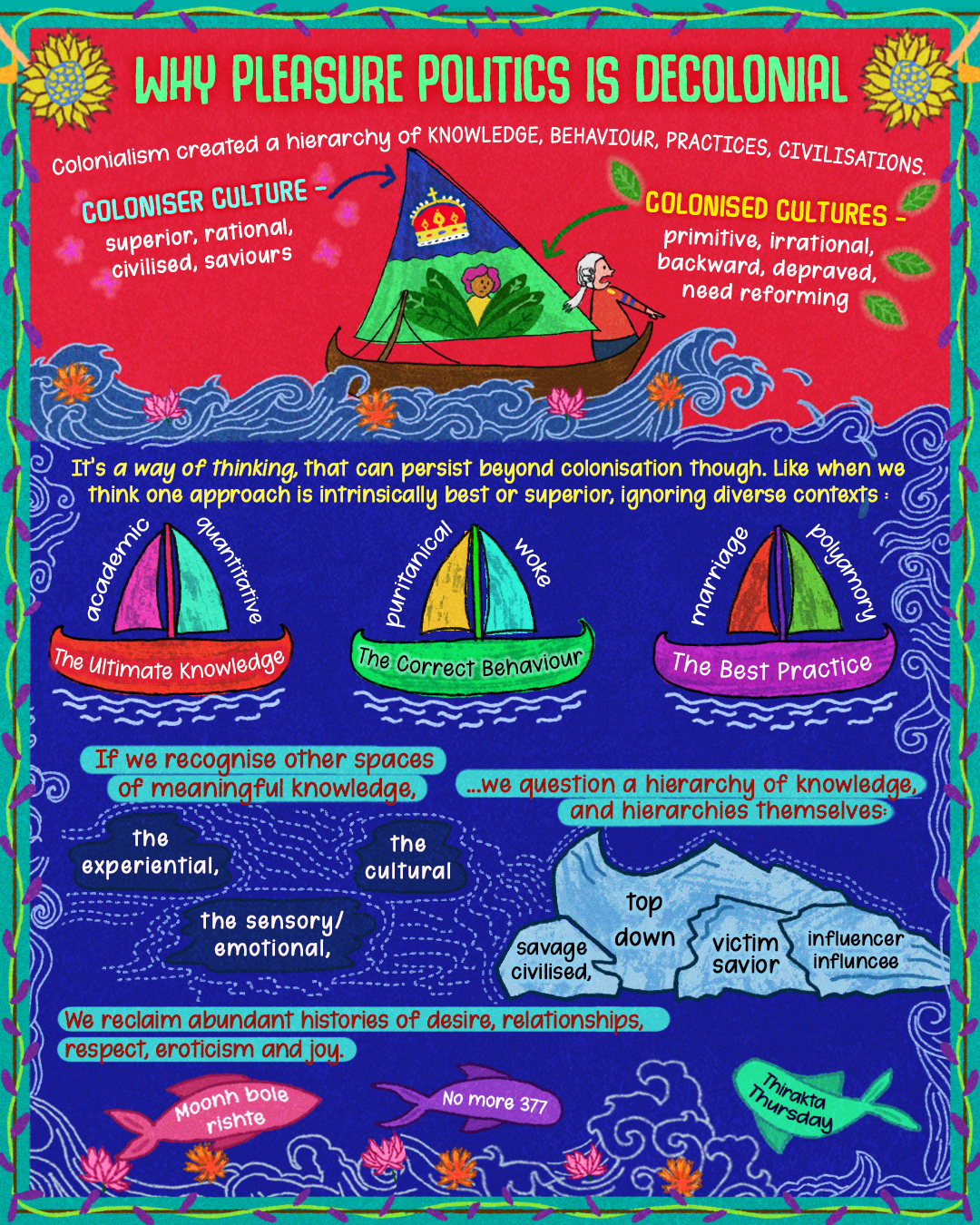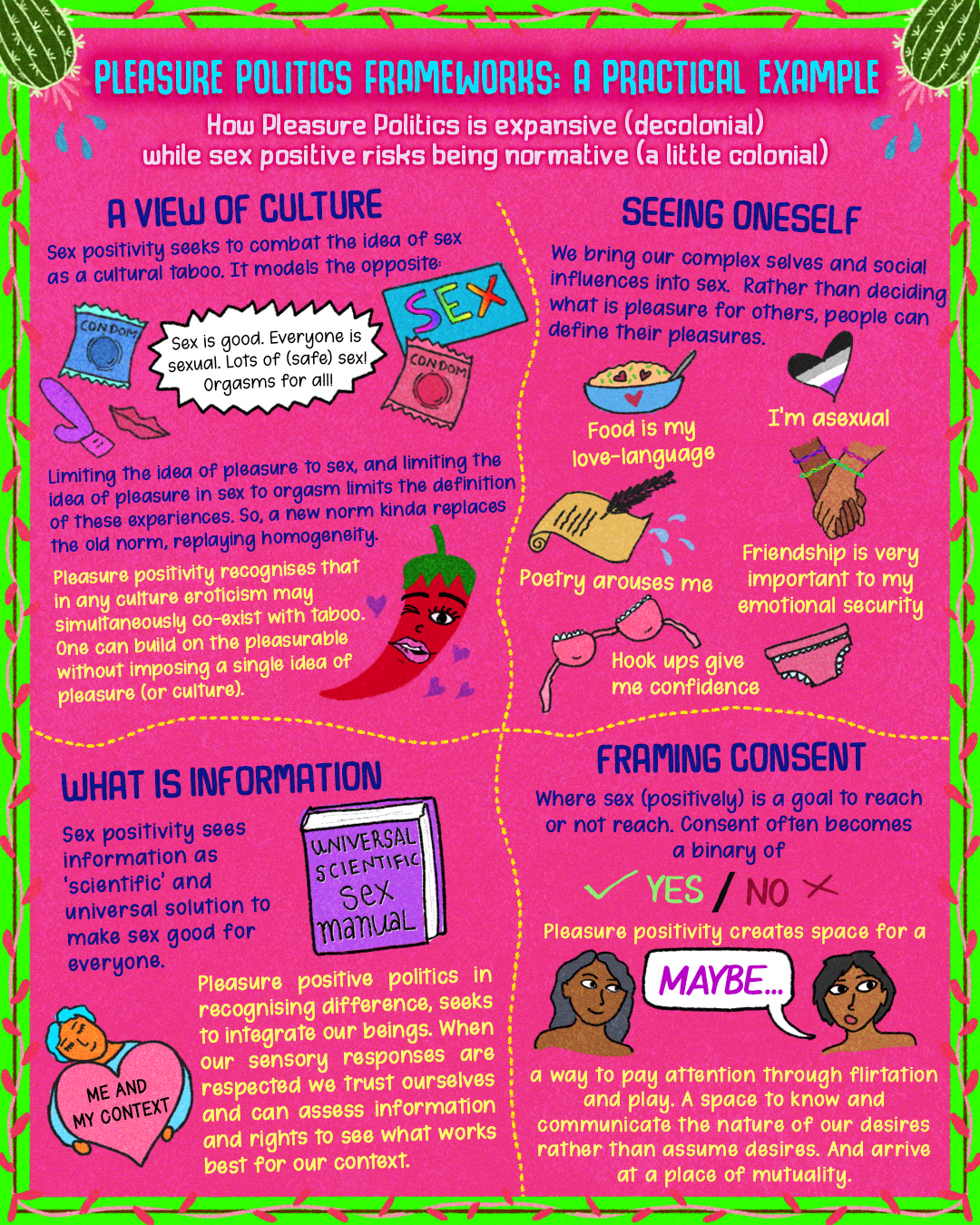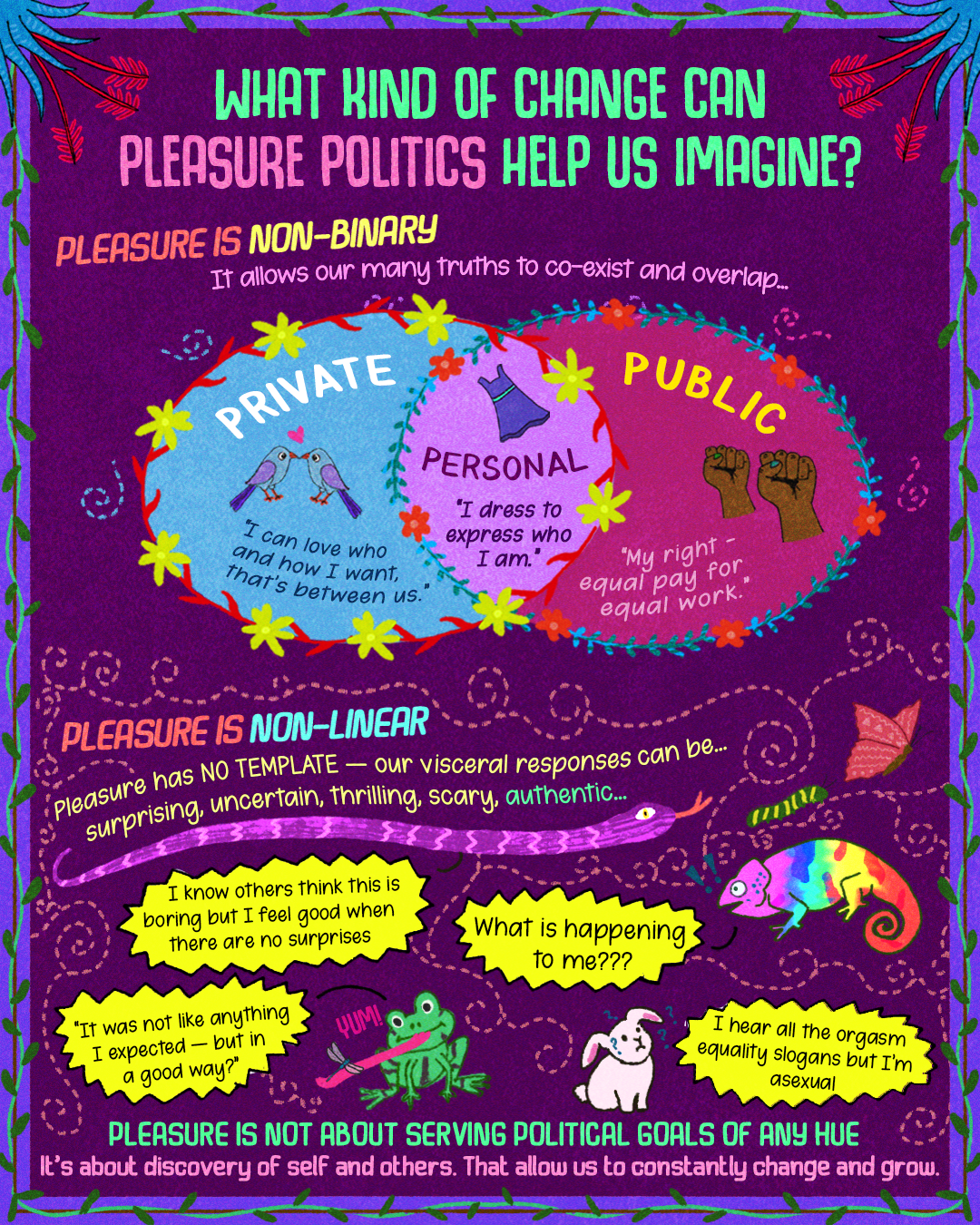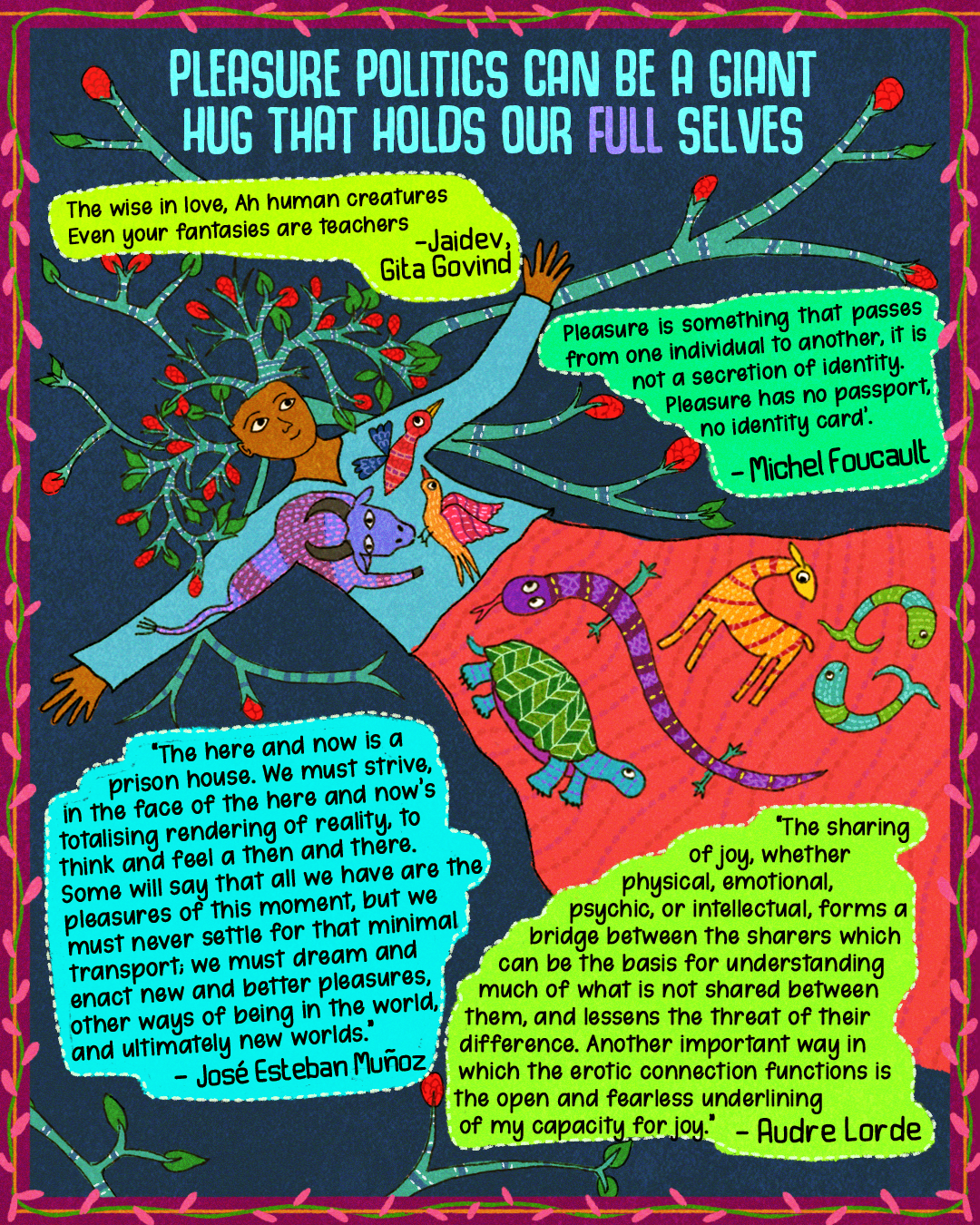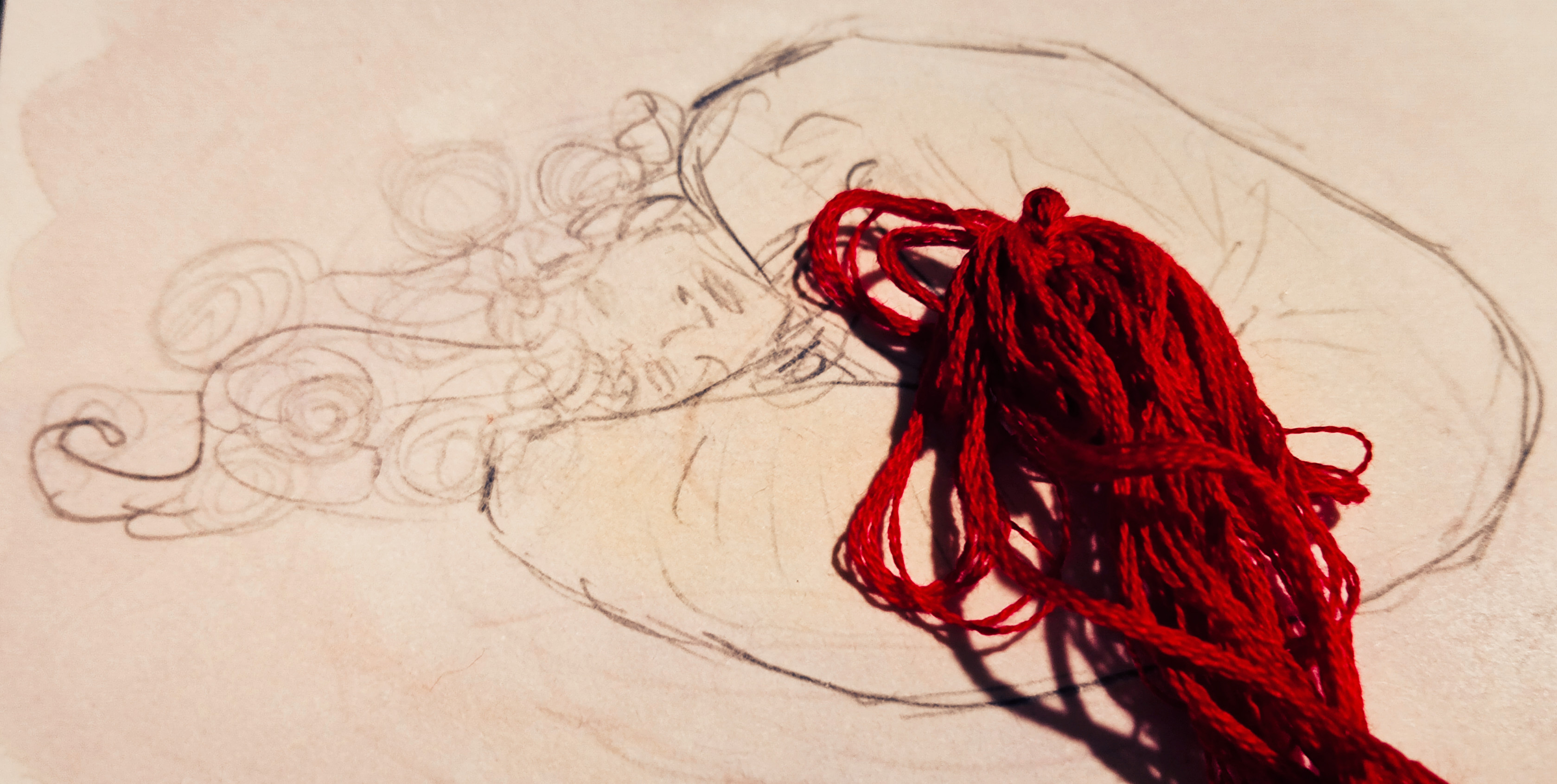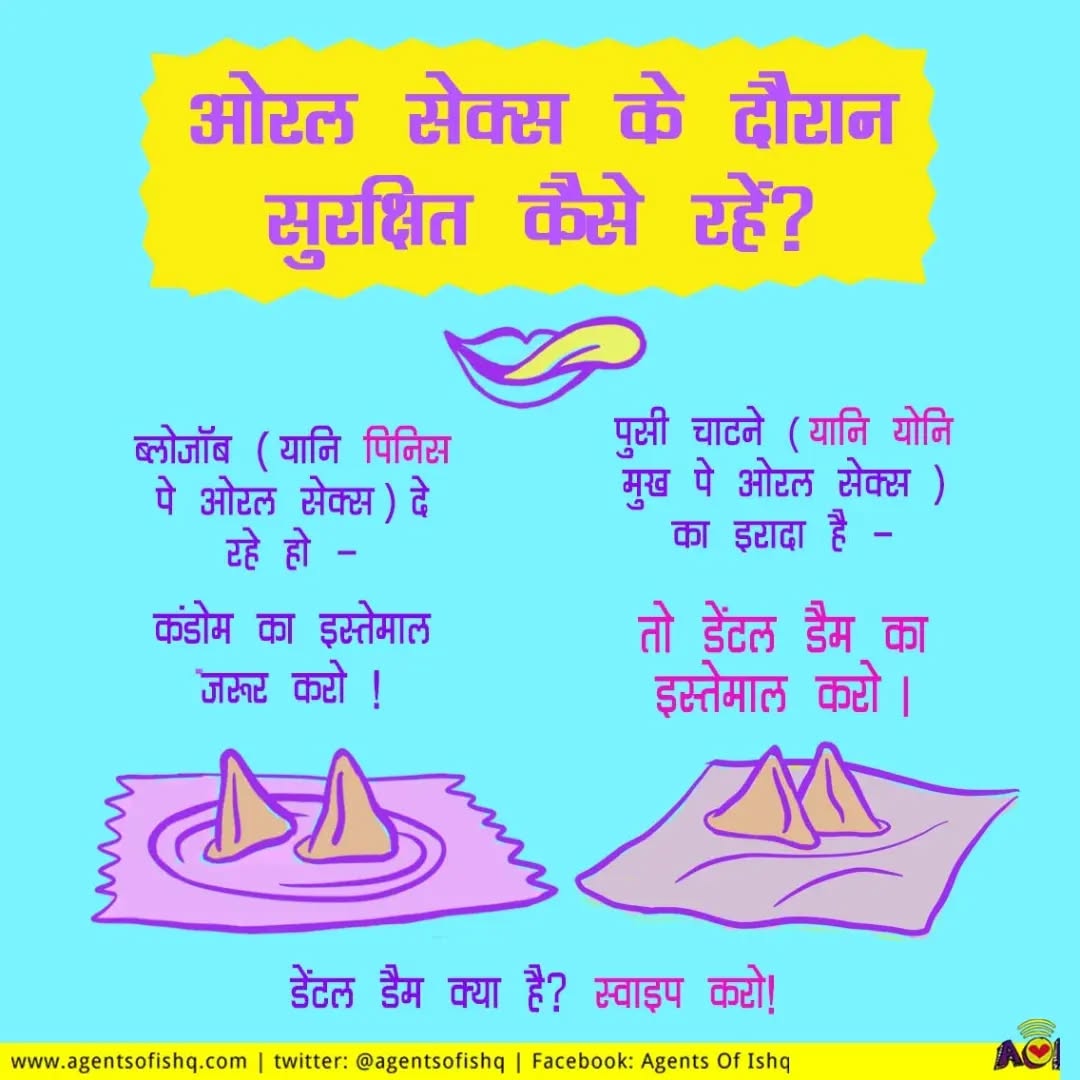THE POLITICAL POWER OF PLEASURE - AN AOI MANIFESTO
WHAT MAKES PLEASURE POLITICALLY POWERFUL?
Examining our pain and anger helps us identify the structures that limit and oppress us. It helps us understand the problem. Problems like - Norms, Attitudes, Emotional habits, Controlling ideas, Structures that make us feel trapped, oppressed, unable to dream.
A pleasure positive political approach helps us move from describing what we don’t want to articulating what we want - imagining liberation. Liberation in ways like -
Love and affection, Work, Emotion, dreams, Sexual enjoyment, Desires, security, Autonomy, adventure, Fun, respect, Intellectual discovery, Political expression
That’s what makes pleasure transformative - and politically powerful.
BUT, THE DISMISSAL OF PLEASURE IS ALSO POLITICALLY POWERFUL.
Things people say about pleasure
Pleasure is selfish - “What will people say if they found out ___? Think about your parents.”
Pleasure is dangerous - “Do you want to end up like a Madhur Bhandarkar heroine?”
Pleasure is trivial and un-political - “How can you bear to watch rom-coms as a feminist?”
Pleasure is not real - “You should focus on your studies and find a decent job. Romance is an illusion. ”
Pleasure could make you socially inferior - “Hooking up with them? That desperate?”
“That outfit? It’s so gaudy and low-class” “Craving meat? How unrefined.” “You want to learn dance? You a gay or what?”
Pleasure is the enemy from whom we must be ‘saved’ - “This will seem exciting now but later you’ll regret it. Trust me, I know what’s good for you”
This pleasure negativity or censoriousness creates an atmosphere of everyday self-doubt and judgement.
PLEASURE-NEGATIVE CENSORS ROBS US OF SELFHOOD
State, community, social reformers, family, media – become the authorities of our beings. Instead of trusting our responses, we begin to police our behaviours and school our responses to uphold the social order.
“Maybe no one will love me if I’m that kind of woman”
“I’ll never fit into office if I take non-veg tiffin”
“I’ll never be taken seriously if I say I love SRK”
“I got carried away hehehe”
Fitting In Outsider:
I like this coz this is who I am. {Being Consistent}
Am I supposed to like this? {Being appropriate}
What have I liked in the past? {Being predictable}
If I like this, what does that say about me? {Being legible}
Can I only know by doing? Or is there a formula? (Being a replica)
Self-Doubt and Anxiety Inside:
Do I have a choice? What if I changed my mind?
Hierarchy: Should I be upholding some or defy them?
Is this worth changing status quo over?
As a {political identity} I have to stay true to my image.
Social pressures: What will people around me say?
Peer pressure-What if got the language wrong?
Am I going to look like a freak?
PLEASURE GIVES US CONFIDENCE IN OUR TRUTHS
If we acknowledge pleasure (what we like), we pinpoint and acknowledge discomfort (what makes us uneasy).
“She’s smiling, but I sense she is putting me down”
“They are joking, but I can feel their hurt”
“This person is talking about rights, but I sense their body language is full of contempt”
Pleasure educates our senses and helps us see truths beyond stereotypes:
“Everyone says no one likes dark girls, but I sense he is attracted to me”
“They are not very articulate, but I can see the intelligence in their eyes”
Pleasure politics helps us
to read between the lines,
to interrogate hierarchy, assumptions, gaslighting
to trust warmth, comradeship, kindness, solidarity in unexpected places
And so build our agency and belief in ourselves.
Being Pleasure Positive helps us to trust the knowledge of our senses instead of
settling for the status quo.
TRUSTING OUR SENSES IS A PATHWAY TO DIVERSITY
What we call universal is rooted in post-Enlightenment Europe, where the experience of the European white male operated as the norm – and the rest of humanity was judged by it.
“hi, I’m Norm, be like me”
This view often presents itself as rational, scientific, biological, objective. And declares culture, identity, emotion, subjective, unreliable, a minority view.
But there is no universal template of experience. Our sensory responses are both, deeply cultural and uniquely personal.
We are each a web of -
Past Experience
“I’m not used to being taken seriously because of my identity”
Present Encounters
“I have a partner but I feel emotionally rejected in love”
Future Aspirations
“I want to feel in control of my life.”
Our sensory experiences and knowledge they help develop are culturally and personally diverse.
That’s what makes pleasure politics decolonial. Bole toh?
WHY PLEASURE POLITICS IS DECOLONIAL
Colonialism created a hierarchy of knowledge, behaviour, practices, civilisations.
Coloniser culture = superior, rational, civilised, saviours
Colonised cultures = primitive, irrational, backward, depraved, need reforming
It’s a way of thinking, that can persist beyond colonisation though
Like…when we think one approach is intrinsically best or superior, ignoring diverse contexts.
The Ultimate Knowledge (academic, quantitative)
The Correct Behaviour (puritanical, woke)
The Best Practice (marriage, polyamory)
If we recognise other spaces of meaningful knowledge like - the experiential, the sensory/emotional, the cultural - we question a hierarchy of knowledge, and hierarchies themselves!
Bole toh hierarchies like -
top-down,
victim-saviour,
savage-civilised,
influencer-influencee
We can reclaim abundant histories of desires, relationships, respect, eroticism and joy – as well as make up new ones. Like Moonh Bole Rishte, No More 377, Thirakta Thursday.
PLEASURE POLITICS FRAMEWORKS : A PRACTICAL EXAMPLE
Why Pleasure politics is expansive (decolonial) while sex positive risks being normative (a little colonial)
A VIEW OF CULTURE
Sex positivity seeks to combat the idea of sex as a cultural taboo.
It models the opposite “Sex is good. Everyone is sexual. Lots of (safe)sex! Orgasms for all!”
Limiting the idea of pleasure to sex, and limiting the idea of pleasure in sex to orgasm limits the definition of these experiences.So, a new norm kinda replaces the old norm, replaying homogeneity.
Pleasure positivity recognises that in any culture eroticism may simultaneously co-exist with taboo.One can build on the pleasurable without imposing a single idea of pleasure (or culture).
SEEING OURSELVES
We bring our complex selves and social influences into sex. Rather than deciding what is pleasure for others, people can define their pleasures
“I’m asexual, not frigid.”
“Friendship is very important to my emotional security”
“Hook ups give me confidence”
“Food is my love-language”
“Poetry arouses me”
WHAT IS INFORMATION
Sex positivity sees information as ‘scientific’ and universal solution to make sex good for everyone. Pleasure positive politics in recognising difference, seeks to integrate our beings. When our sensory responses are respected we trust ourselves and can assess information and rights to see what works best for our context.
FRAMING CONSENT
Where sex (positively) is a goal to reach or not reach. Consent often becomes a binary of Yes and No.Pleasure positivity creates space for a maybe – a way to pay attention through flirtation and play. A space to know and communicate the nature of our desires rather than assume desires. And arrive at a place of mutuality.
WHAT KIND OF CHANGE CAN PLEASURE POLITICS HELP US IMAGINE?
PLEASURE IS NON-BINARY
It allows our many truths to co-exist and overlap
PRIVATE - I can love who and how I want, that’s between us
PERSONAL - I dress to express who I am
PUBLIC - My right-equal pay for equal work
PLEASURE IS NON-LINEAR
Pleasure has no template – our visceral responses can be surprising, uncertain, thrilling, scary
“What is happening to me???
“It was not like anything I expected – but in a good way?”
“I know others think this is boring but I feel good when there are no surprises”
“I hear all the orgasm equality slogans but I’m asexual”
PLEASURE IS NOT ABOUT SERVING POLITICAL GOALS OF ANY HUE
It’s about discovery of self and others.That allows us to constantly change and grow.
PLEASURE POLITICS CAN BE A GIANT HUG THAT HOLDS OUR FULL SELVES
“The wise in love, Ah human creatures
Even your fantasies are teachers”
- Jaidev’s Gita Govind
“The sharing of joy, whether physical, emotional, psychic, or intellectual, forms a bridge between the sharers which can be the basis for understanding much of what is not shared between them, and lessens the threat of their difference.”
- Audre Lorde
“Pleasure is something that passes from one individual to another, it is not a secretion of identity. Pleasure has no passport, no identity card’.”
- Michel Foucault
“The here and now is a prison house. We must strive, in the face of the here and now’s totalising rendering of reality, to think and feel a then and there. Some will say that all we have are the pleasures of this moment, but we must never settle for that minimal transport; we must dream and enact new and better pleasures, other ways of being in the world, and ultimately new worlds.”
- José Esteban Muñoz

